The thriving underground scene has taken a hit during the pandemic. Unfortunately, among those forced to close down are TodayxFuture and XX XX.
These clubs are not only venues for local electro music. For the LGBTQ+ community, they also serve as queer spaces where sound and dancing bodies collide in the most expressive way possible.
In Jennie Livingston’s “Paris is Burning,” the era of house ball culture is well-documented, showing how crucial the queer community’s role was on the birth of dance and house in the ’80s. While this may be a significant facet of queer lives, the genre’s mainstream appeal is now dominated by white, male DJs, club owners, labels and bookers, as scholar and musician Luis Manuel Garcia puts it.
Electro-music’s impact on the West made ripples here in the Philippines with queer electronic artists carrying house music’s rich herstory on their sets. “House was originally an underground club music by and for African Americans and other BIPOCs whose marginality intersected with the queer,” says Manila-based artist and DJ Isola Tong. “To DJ as a trans body is to go back to the socio-political roots of house as a mode of expression and self-representation.”
The importance of performing music and cultivating queer spaces like clubs has been crucial more than ever. It’s safe to say that this year hasn’t been kind to queer Filipinos, especially the transgender community. In this year alone, a security personnel barred a trans woman from using the woman’s restroom, the killer of Jennifer Laude is now a free man, and trans women like Alexis Heart Garcia continue to get harrassed in public.”
This is why queer artists and spaces are more important than ever. They can push visibility and also hold the call for zero-degree eradication of stigma and violence against trans lives.
To explore this further, we talked to Adrianne, Teya and Isola as they discuss their love of electronic music, the importance of queer spaces, their formative experiences in DJing and their experiences of bigotry and systemic oppression.
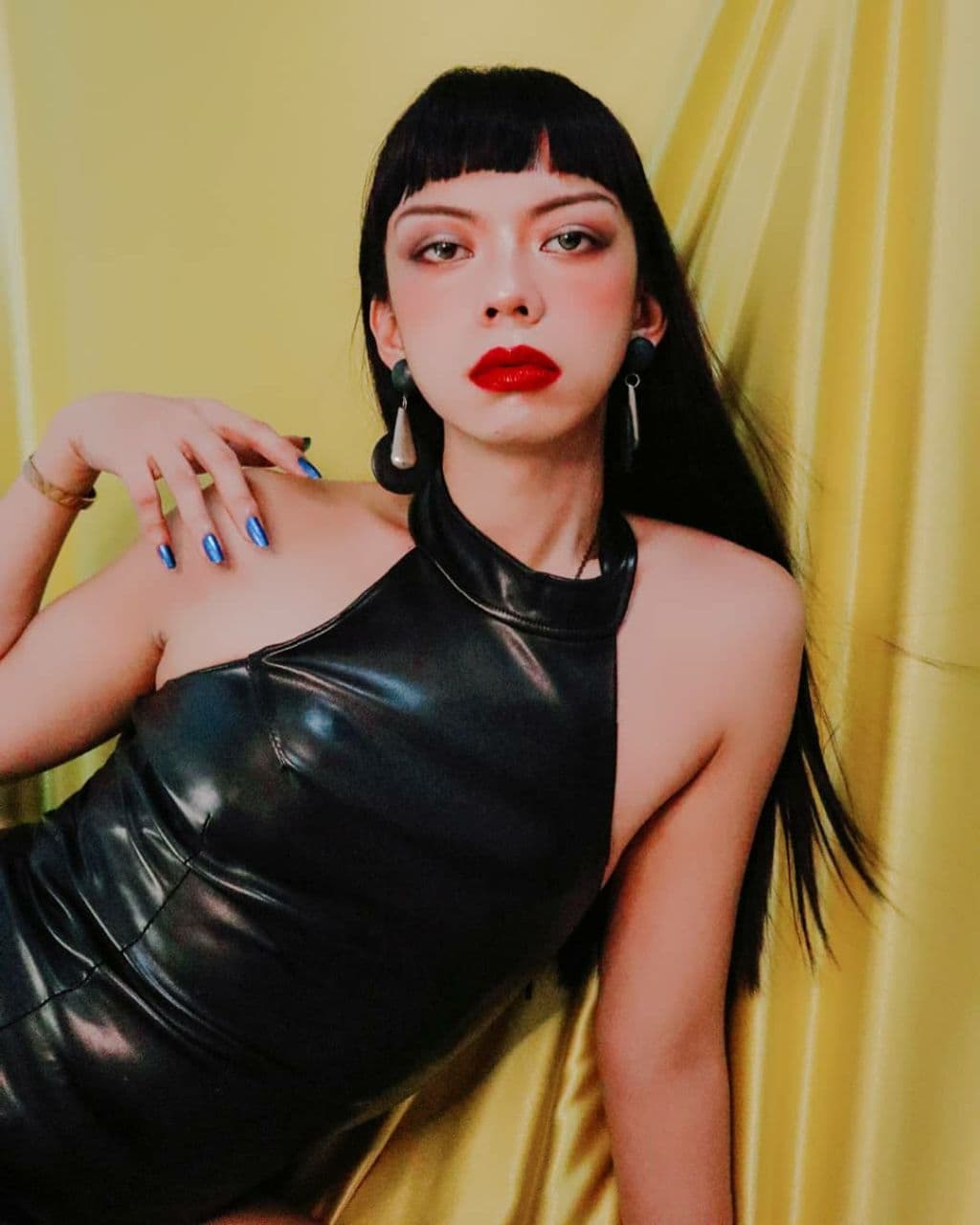
“Nothing will change if we always cower in fear. It’s important that I live bravely for my freedom and dignity as a human being with inalienable rights just like any Juan or Maria,” Isola Tong, artist/musician
When was your first venture into dj-ing?
Adrianne: It was two years ago at XX XX for Elephant Night. Paul [Jatayna] and Shahani [Gania] asked me to duo with Moi for a two-hour set. The night was themed “Fairest of them All” from “Sleeping Beauty.”
Teya: I’m part of this really wonderful community online called CXD, my entire development as a music lover basically started there. It’s full of the nicest people I’ve ever met. Anyway, I have an amazing DJ friend from CXD named Ridebird, who decided to send me an old DDJ-SB3 controller to support me since I couldn’t afford one myself. He sent it all the way from Sweden to the Philippines, and when I received it, I really got into the art of mixing.
Isola: I believe it was in 2016 when I began to DJ. It was in Today x Future in Cubao. My sets then were not even techno or house. I started when Chie Castañeda invited me to DJ for a Britpop and Britrock-themed Wednesday nights called “In-Betweener.”
“As long as there are queer bodies, there will be safe spaces. Because it is us who create the space not otherwise.”
Although nightlife is currently on hold, we’re wondering what your perfect DJ set sounds like?
Adrianne: A set with a bit of drama. Varying basslines, colorful sounds and a nice flow of energy! (Maybe a song or two to make me laugh and to take the seriousness away for a little bit).
Teya: An emotional and unhinged DJ, playing an incredibly dramatic set that plays out like the most terrifying audio horror made about being queer and colonized. I want all the queer and colonized kids in that room to, for once, feel like they can truly surpass the colonial and white-dominated club scene, to feel self-reliant and in no need of validation. I want that entire room to be a space where for one night they can scream and dance out all their bottled-up frustrations with each other.
Isola: A perfect set is where I can play Madonna’s “Deeper and Deeper” from my favourite album “Erotica” from 1992.
How important is the cultivation of ‘safe spaces’ in an age of isolation?Adrianne: It’s very important because it gives us a sense of home (especially when our home doesn’t feel like one). A place of comfort that takes away our daily worries and let’s us be truly ourselves without fear. Especially now with the closure of some of the queer spaces around the metro (XX:XX and TodayxFuture) the need for our community to come together online has been even greater, to be more present and active. You are never alone, we will be alone—together.
Teya: If by safe space you mean a temporary space of resistance where a marginalized group can be safe, organize and develop revolutionary thought, then I think they’re crucial to building our own structures of power, to challenge capitalism and colonialism.
Stonewall was originally a shoddy gay bar (a safe space) that didn’t really do anything. It was only when people violently fought the police that change happened. I’m in full support of a queer-only club, but ultimately a “safe space” shouldn’t be an assimilation into capitalism but an act of active resistance against it.
Isola: As long as there are queer bodies, there will be safe spaces. Because it is us who create the space not otherwise.
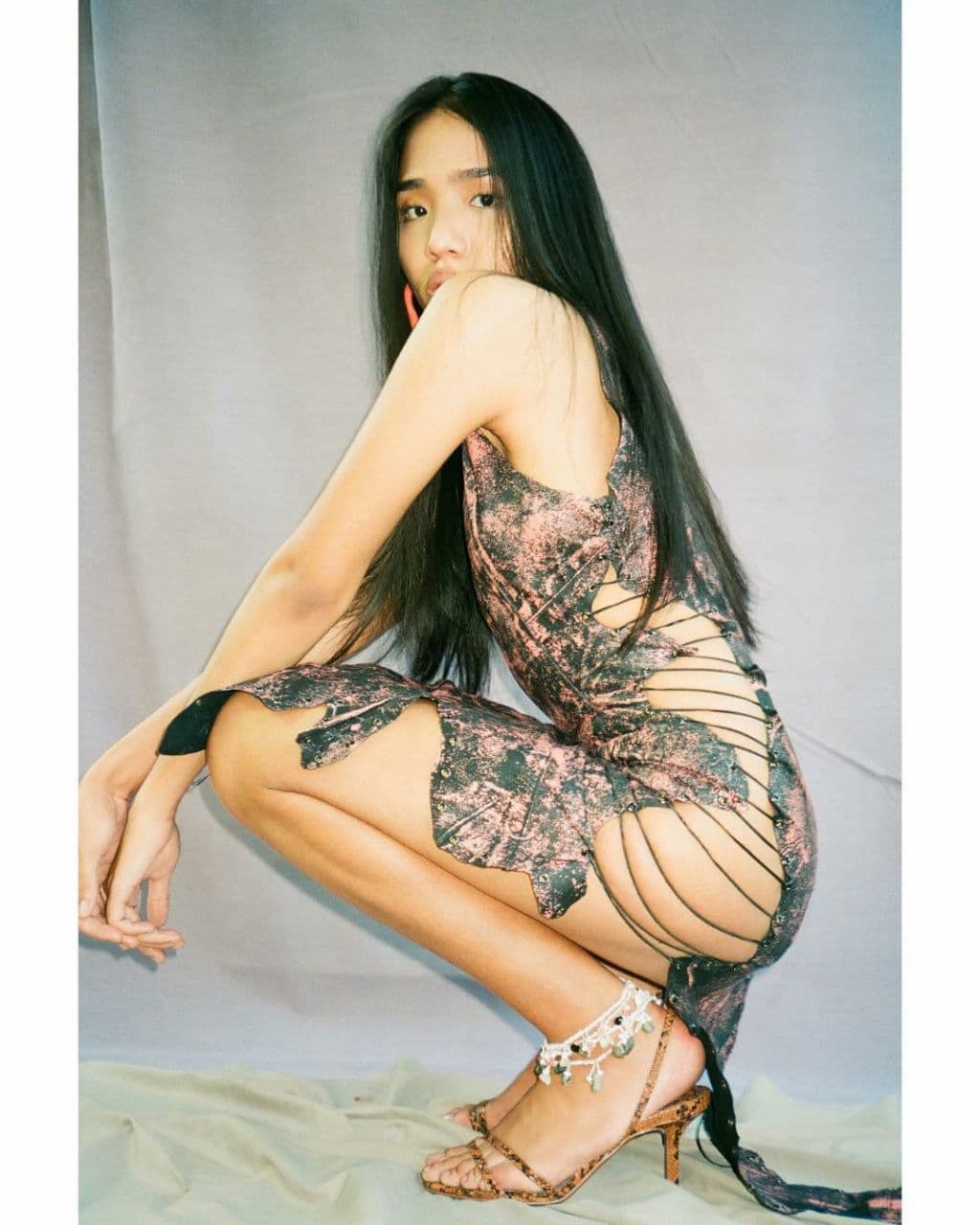
“’90s house music was the first genre of electronic music I truly fell in love with. I started studying about the origins and history of it and that’s when I fully understood the safety, comfort and freedom of house,” DJ Adrianne, model/musician
What challenges have you experienced being trans in the local dj scene?
Adrianne: The thought of being discriminated against based on my gender identity lingers through my mind all the time. Fear and anxiety have always been present in everything that I do, such as fear of not being understood or rejected.
Teya: My true and very personal challenges as a trans woman in the local scene are my insecurities, like my gender dysphoria that paralyzes me from buying clothes and going out. When this quarantine is over, I just want to go nuts and liberate myself.
I just want to go out there, put on a dress, be myself and scream my heart out on top of some distorted kicks and harsh noise at the club. I want to smash my insecurity and just liberate myself!
Isola: Being sexually harassed by a random white French guy while I’m doing a set. I never gave my consent to be touched in private places, but some people are just rude.
How important is it to define the things you do as a trans woman?
Adrianne: I realized that in my own way I am representing my community with everything that I do, either through my work or simply just existing. I want to help lessen the stigma on our community.
Teya: A lot of people think labels are inherently oppressive because it boxes people in, but it depends on the context. These labels also allow us to understand ourselves and our relationship with society. That’s why I explicitly want people to call me a trans woman, not just a woman.
I want to be proud of the most honest version of who I am, and that requires making that very important distinction of cis versus trans. The solution isn’t to assimilate within our oppressive society, the solution is to change it. Smash the gender binary!
Isola: It’s all about representation. Trans women are constantly being erased and sometimes quite literally, as in murder, so it’s very important that I am visible, that I am present. Nothing will change if we always cower in fear. It’s important that I live bravely for my freedom and dignity as a human being with inalienable rights just like any Juan or Maria.
“A queer art movement, like the music we make is ultimately meaningless without a politically strong force, because art isn’t where the real power lies.”
What do you think is the relevance of music especially for a community that has continuously been grappling with systemic oppression, bigotry and religious puritanism?
Adrianne: In a way it really helps us stay sane, while we deal with the challenges that we experience in our daily lives. Music has connected us and has been an outlet for us to express what we feel, while relieving us from the years of oppression that we have been faced with. It has also been used as a voice to raise certain political and societal awareness.
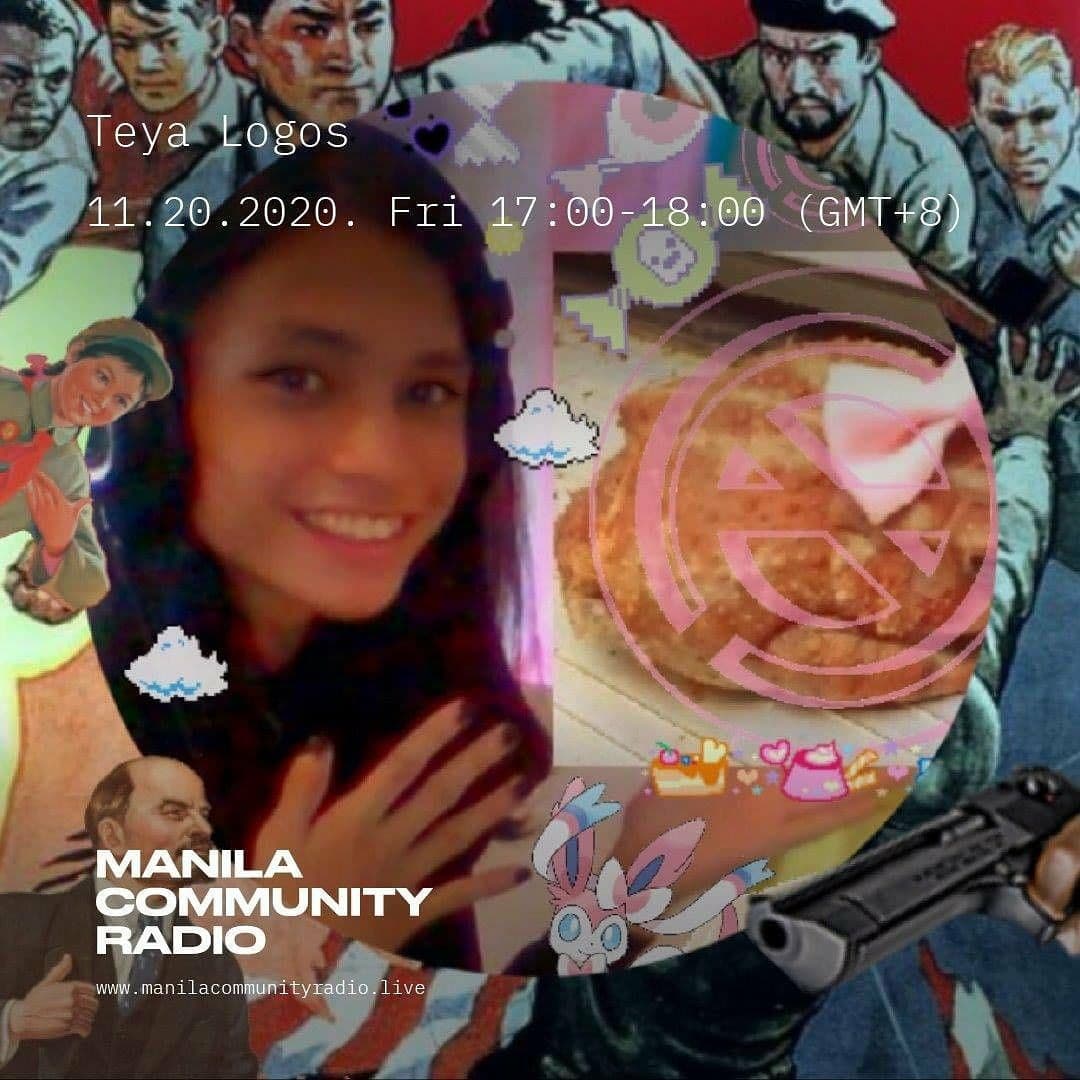
“A queer art movement, like the music we make is ultimately meaningless without a politically strong force, because art isn’t where the real power lies,” Teya Logos, music producer
Teya: A queer art movement, like the music we make is ultimately meaningless without a politically strong force, because art isn’t where the real power lies. We need to keep building our own structures of power, so we no longer have to participate and assimilate within their capitalist and colonial ones. If we don’t do real political and material action, our art is ultimately meaningless. Revolutionary art is inseparable from revolutionary practice.
Isola: Music has always functioned as a message of love and unity. Madonna says: “Music makes the people come together. Music mixes the bourgeoisie and the rebel.” I am optimistic that music can be an agent of healing so let us continue to support our DJs and musicians especially those who spread important messages. We can only fight productively if we fight together.
How do you envision the future of electronic music in Manila?
Adrianne: The local scene still has a lot more challenges to overcome. I see a bigger community, more local labels, artists and hopefully a stronger cultural identity.
Teya: I hope we’ll no longer feel the need to be part of colonial European electronic music institutions. I hope we’ll feel adequate and successful just doing shows for Filipinos, being signed with Filipino labels, working with Filipino artists, and if ever we work internationally, we won’t let white people define us: we’d define ourselves.
I’m very guilty myself of participating (in gigs) with colonial and capitalist institutions. (But) I don’t want to end this question on a depressing note. Depression is rage turned inwards, and we should use our rage to build our own power, so we don’t need to be part of their bullshit anymore.
“Music has connected us and has been an outlet for us to express what we feel, while relieving us from the years of oppression that we have been faced with.”
I really love Club Matryoshka, a Filipino-owned and -ran club that I think is a very genuine attempt at building Pinoy-owned power structures in the international electronic music scene. They also take no shit from colonial institutions that try to define them as “exotic” or whatever.
Isola: Thriving. More and more kids are stepping up and asserting their vision of the future which is more tolerant and diverse, and this will affect music as well.
Adrianne’s Soundcloud and her Spaghetti Strap House mix
Isola’s Effeminate Kun Mixtape
Teya’s Soundcloud and her Transgender Day of Remembrance mix
Read more:
A local virtual music fest is happening thanks to Club Matryoshka
After 12 years, LGBTQ+ safe space Today x Future is closing down
XX XX closes its doors after more than four years
Art by Yel Sayo















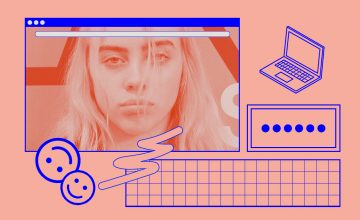
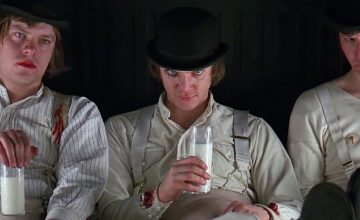
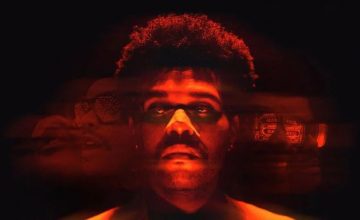






Comments